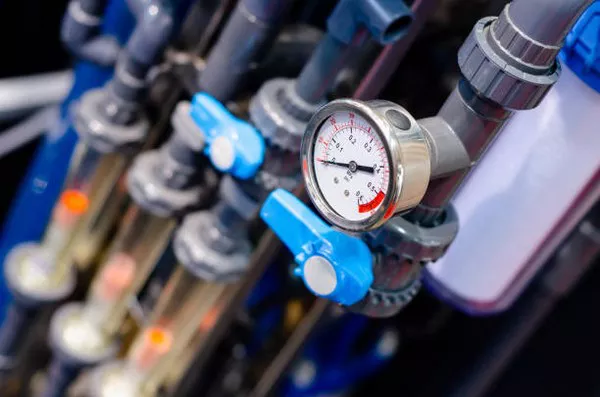Process instrumentation plays a crucial role in industries ranging from chemical manufacturing to food processing, helping to monitor and control various aspects of production. It is a vital component of industrial automation, enabling companies to optimize their processes, improve product quality, enhance safety, and reduce operational costs. In this article, we will delve into what process instrumentation is, its significance, and its various applications across industries.
Defining Process Instrumentation
Process instrumentation refers to the use of specialized devices and sensors to measure, monitor, and control various parameters within industrial processes. These parameters can include temperature, pressure, flow, level, pH, conductivity, and more. The primary goal of process instrumentation is to provide real-time data and feedback that allows operators to maintain the desired process conditions, ensure product quality, and adhere to safety standards.
Key Components of Process Instrumentation
Sensors and Transducers: Sensors are the heart of process instrumentation. They convert physical variables (such as temperature or pressure) into electrical signals. These sensors can take various forms, including thermocouples, pressure transducers, level sensors, and flow meters. Each sensor is designed to measure a specific parameter accurately.
Signal Conditioning: Once the sensor generates an electrical signal, it often requires conditioning to ensure accuracy and compatibility with the control system. Signal conditioning includes amplification, filtering, and digitization of the sensor’s output.
Controllers: Controllers are responsible for processing the conditioned signals and making control decisions. Programmable Logic Controllers (PLCs), Distributed Control Systems (DCS), and computer-based control systems are commonly used for this purpose.
Actuators: Actuators are devices that execute the control commands issued by the controllers. They can include valves, motors, pumps, and heaters, depending on the specific process being controlled.
Human-Machine Interface (HMI): HMIs provide operators with a graphical representation of the process, allowing them to monitor and interact with the system. Modern HMIs are often touchscreen displays that provide real-time data and control options.
The Importance of Process Instrumentation
Efficiency and Optimization: Process instrumentation enables industries to optimize their operations by continuously monitoring key parameters. By adjusting control settings in response to real-time data, processes can run more efficiently, reducing energy consumption and waste.
Quality Control: In industries like pharmaceuticals, food production, and chemical manufacturing, maintaining precise conditions is essential to ensuring product quality and consistency. Process instrumentation helps achieve and maintain these conditions.
Safety: Process instrumentation plays a crucial role in ensuring the safety of both equipment and personnel. Monitoring pressure, temperature, and other critical parameters can help prevent accidents and mitigate risks.
Regulatory Compliance: Many industries are subject to strict regulatory requirements. Process instrumentation provides the data needed to demonstrate compliance with these regulations, reducing the risk of fines or legal actions.
Data Logging and Analysis: Process instrumentation systems often include data logging capabilities, allowing companies to collect historical data for analysis. This data can be used for troubleshooting, process optimization, and predictive maintenance.
Applications of Process Instrumentation
Chemical Industry: In chemical manufacturing, precise control of temperature, pressure, and chemical concentrations is essential for product quality and safety. Process instrumentation ensures that reactions occur under controlled conditions, preventing accidents and ensuring product consistency.
Oil and Gas Industry: Process instrumentation is used to monitor and control the extraction, refining, and transportation of oil and gas. This includes measuring flow rates, pressure, and temperature in pipelines, as well as controlling equipment like pumps and valves.
Power Generation: Power plants rely on process instrumentation to maintain efficient and reliable energy production. Sensors and controllers are used to monitor and adjust parameters such as steam pressure, temperature, and turbine speed.
Pharmaceuticals: In pharmaceutical manufacturing, precise control of conditions is critical to ensure the quality and safety of drugs. Process instrumentation is used to monitor and control variables like pH, temperature, and mixing speed during drug production.
Food and Beverage Industry: Process instrumentation is employed in food processing to ensure food safety and quality. Sensors are used to monitor parameters like temperature and pressure during cooking, pasteurization, and packaging processes.
Water Treatment: Water treatment plants rely on process instrumentation to monitor and control the purification process. This includes measuring water quality parameters like pH, turbidity, and chlorine levels.
Automotive Manufacturing: In automotive production lines, process instrumentation is used to ensure the accuracy and quality of manufacturing processes. Sensors monitor parameters such as torque, pressure, and temperature during assembly operations.
Conclusion
Process instrumentation is the backbone of modern industrial processes, enabling companies to achieve efficiency, safety, and quality in their operations. By continuously monitoring and controlling key parameters, industries can optimize their processes, reduce waste, and comply with regulatory requirements. As technology continues to advance, process instrumentation will play an increasingly vital role in the automation and optimization of industrial processes, driving innovation and improving overall productivity across various sectors.

